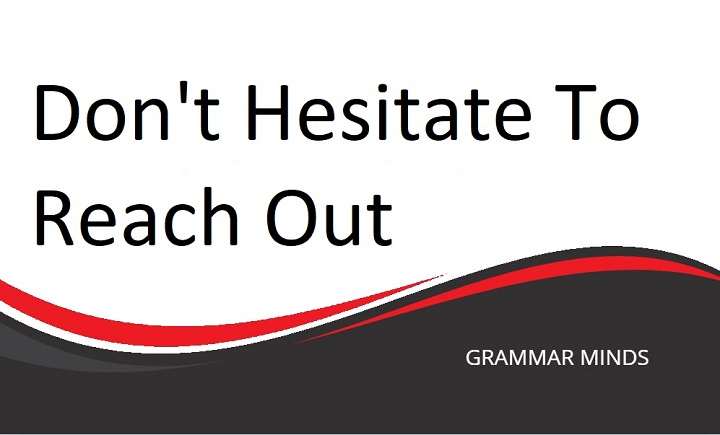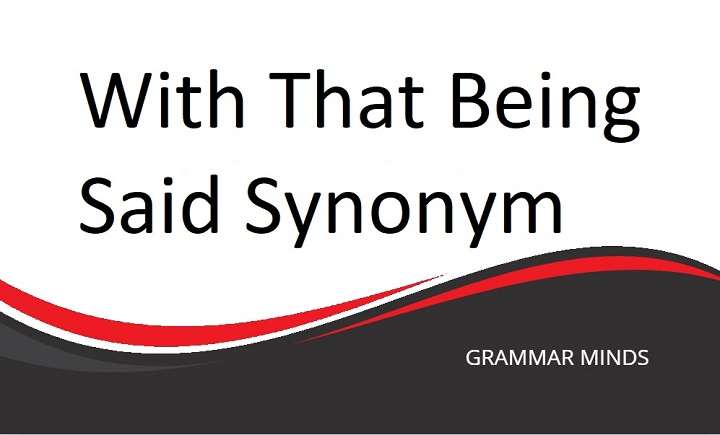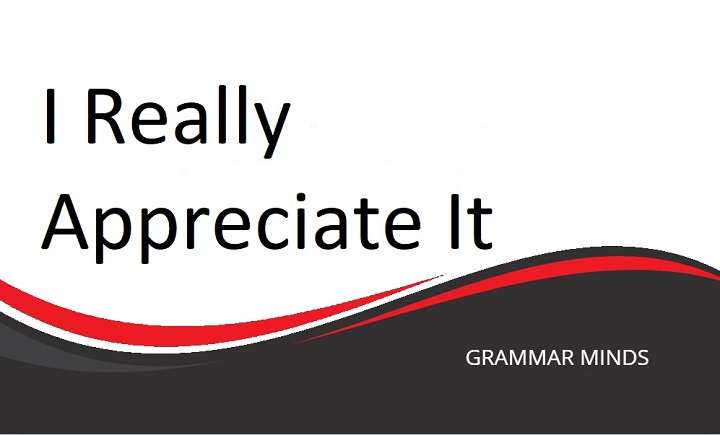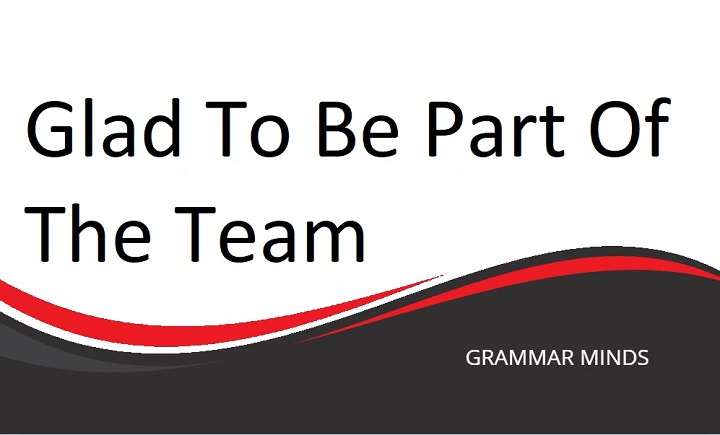In today’s fast-paced world, communication is key. Whether in personal interactions, professional emails, or casual conversations, the way we phrase things often leaves a lasting impression. One phrase that tends to crop up time and again is “don’t hesitate to reach out.” While it’s polite and reassuring, you may find yourself repeating it a bit too often.
Do you find yourself using the phrase “don’t hesitate to reach out” repeatedly? Have you grown tired of this repetitive expression when communicating in your professional or personal life?
Don’t worry! We’ve compiled a handy list of alternative phrases that you can use to mix things up and sound more varied in your conversations. By exploring different ways to express the same sentiment, you’ll keep your communication fresh, engaging, and appropriate to any situation.
Other Ways to Say “Don’t Hesitate to Reach Out”
Here are 10 alternative phrases that will allow you to diversify your vocabulary while keeping the same sentiment intact:
- Feel free to get in touch
- Please contact me at your convenience
- Don’t hesitate to contact me
- You’re welcome to reach out anytime
- Let me know if you need anything
- I’m here if you need me
- Please reach out with any questions
- If there’s anything I can do, feel free to ask
- I’m just a message away
- Let me know if I can help
Each of these phrases serves the same purpose as “don’t hesitate to reach out” but brings a fresh tone to your communication. Let’s explore how to use each of these in both formal and informal settings.
Key Notes
“Don’t hesitate to reach out” is grammatically correct and suitable for both formal and informal situations. However, it can sometimes feel a bit basic and overused.
- You can use “Feel free to get in touch” for informal situations, especially in casual conversations or friendly emails.
- “Please contact me at your convenience” is a great formal alternative to “don’t hesitate to reach out” for professional settings like emails and business communication.
- “Let me know if you need anything” is another informal option, particularly useful in friendly conversations or when communicating with close colleagues.
Let’s dive deeper into how to use these phrases, depending on the context.
Feel Free to Get in Touch
Usage:
If you’re looking for a more informal way to say “don’t hesitate to reach out,” try using “feel free to get in touch.” It’s friendly, approachable, and less formal, making it ideal for casual emails or conversations with people you know well.
Example (in conversation):
Hey [Friend’s Name],
Thanks for all your help today. Feel free to get in touch if you need anything!
Example (in an email):
Dear [Recipient],
Thank you for your time during the meeting. Feel free to get in touch if any further questions arise.
Best regards,
[Your Name]
Please Contact Me at Your Convenience
Usage:
A more formal alternative to “don’t hesitate to reach out” is “please contact me at your convenience.” This phrase adds a touch of professionalism, making it perfect for business settings or when communicating with clients or colleagues.
Example (in an email):
Dear [Recipient],
Thank you for the update on the project. Please contact me at your convenience if you need any further information.
Best regards,
[Your Name]
Don’t Hesitate to Contact Me
Usage:
This phrase is quite similar to “don’t hesitate to reach out” but carries a slightly different tone. It’s a great option when you need a balance between formal and informal communication, such as in semi-casual emails or conversations.
Example (in an email):
Dear [Recipient],
I appreciate your prompt response. Don’t hesitate to contact me if you need any clarifications.
Best regards,
[Your Name]
You’re Welcome to Reach Out Anytime
Usage:
For a warm and open tone, you can use “you’re welcome to reach out anytime.” This phrase works well in both formal and informal settings and signals that you’re approachable and available.
Example (in conversation):
Hey [Friend’s Name],
You’re welcome to reach out anytime if you need anything. Take care!
Example (in an email):
Dear [Recipient],
You’re welcome to reach out anytime if you have any additional questions or concerns.
Best regards,
[Your Name]
Let Me Know if You Need Anything
Usage:
This phrase is particularly effective in informal settings, conveying a friendly and supportive tone. It’s great for conversations with friends, family, or close colleagues.
Example (in conversation):
Hey [Friend’s Name],
I’ll be around all day. Let me know if you need anything!
Example (in an email):
Dear [Recipient],
It was great speaking with you earlier. Let me know if you need anything else.
Best regards,
[Your Name]
I’m Here if You Need Me
Usage:
“I’m here if you need me” is an informal way to offer support and accessibility. It’s a caring, friendly expression, perfect for personal conversations or casual work settings.
Example (in conversation):
Hey [Friend’s Name],
Just a reminder, I’m here if you need me. Don’t hesitate to ask!
Example (in an email):
Dear [Recipient],
I’m here if you need me, so please feel free to reach out anytime.
Best regards,
[Your Name]
Please Reach Out with Any Questions
Usage:
“Please reach out with any questions” is a neutral phrase that works in both formal and informal settings. It’s particularly useful when you want to keep the communication open-ended.
Example (in an email):
Dear [Recipient],
Thank you for your time today. Please reach out with any questions you may have.
Best regards,
[Your Name]
If There’s Anything I Can Do, Feel Free to Ask
Usage:
This phrase conveys a sense of helpfulness and willingness to assist. It works well in informal settings where you want to offer support without being too formal.
Example (in conversation):
Hey [Friend’s Name],
If there’s anything I can do, feel free to ask. I’m happy to help.
Example (in an email):
Dear [Recipient],
If there’s anything I can do, feel free to ask. I’m available anytime.
Best regards,
[Your Name]
I’m Just a Message Away
Usage:
“I’m just a message away” is a casual and friendly phrase, perfect for informal conversations and casual emails. It emphasizes accessibility and approachability.
Example (in conversation):
Hey [Friend’s Name],
Don’t forget, I’m just a message away if you need anything!
Example (in an email):
Dear [Recipient],
If you have any more questions, I’m just a message away. Don’t hesitate to reach out!
Best regards,
[Your Name]
Let Me Know if I Can Help
Usage:
Another friendly and approachable phrase, “let me know if I can help” offers support in a relaxed, informal way. It’s great for both personal and professional communication.
Example (in conversation):
Hey [Friend’s Name],
Let me know if I can help with anything!
Example (in an email):
Dear [Recipient],
Let me know if I can help in any way. I’m happy to assist further.
Best regards,
[Your Name]
Is It Correct to Say “Don’t Hesitate to Reach Out”?
Yes! “Don’t hesitate to reach out” is grammatically correct and suitable for both formal and informal settings. It’s a versatile phrase that can be used in professional emails, conversations with colleagues, or casual chats with friends.
That being said, using synonyms like the ones we’ve listed above will help you mix up your language and sound more varied in your communication.
You can also try slight variations of this phrase, like the following:
- Feel free to drop me a line
- I’m always available for a chat
- Contact me if you need anything
Also Read
Alternative Phrases for “Thank You for Reaching Me Out”
In conclusion, “don’t hesitate to reach out” is a perfectly acceptable and grammatically correct phrase, whether you’re using it in a formal or informal setting. However, the alternative phrases provided in this article will help you diversify your vocabulary and communicate more effectively in different contexts.
By using different expressions, you’ll not only avoid sounding repetitive but also tailor your communication to better suit the tone and formality of each situation. So next time, don’t hesitate to mix it up!






